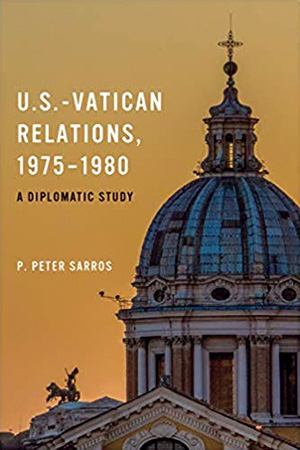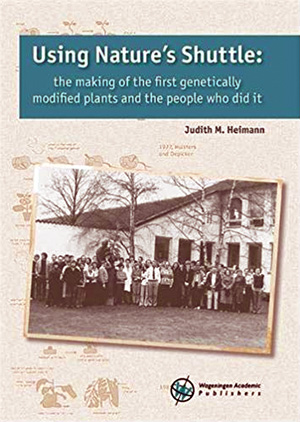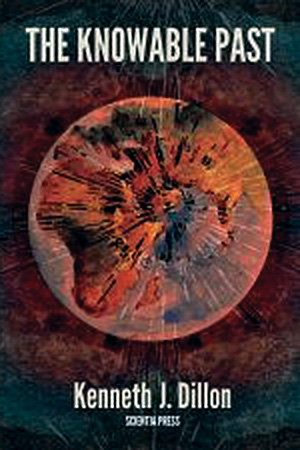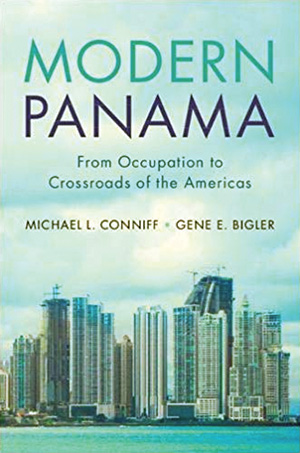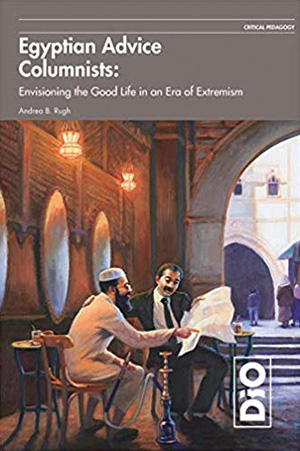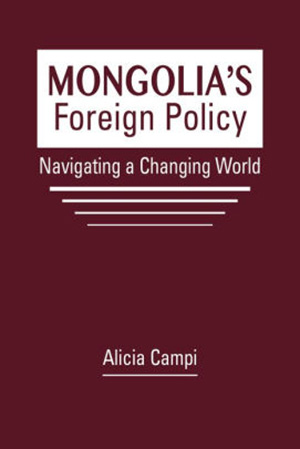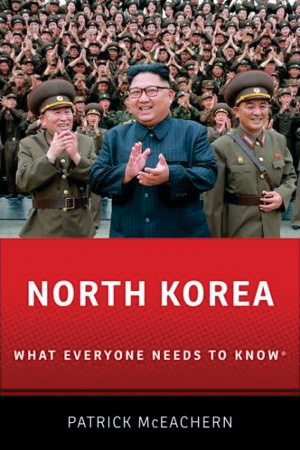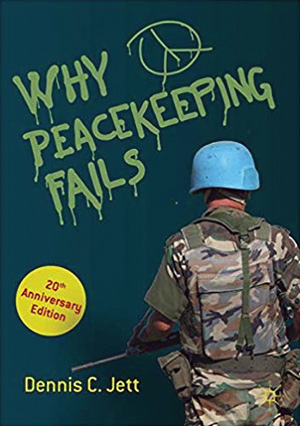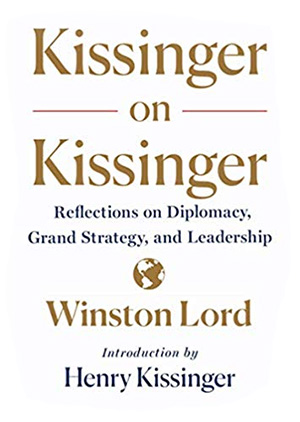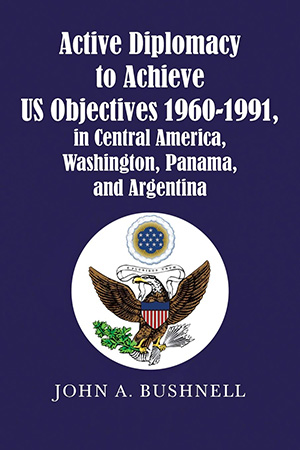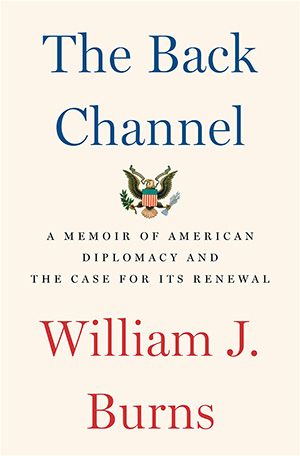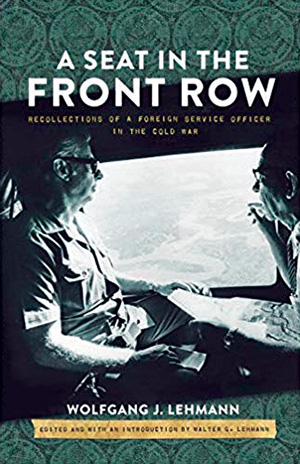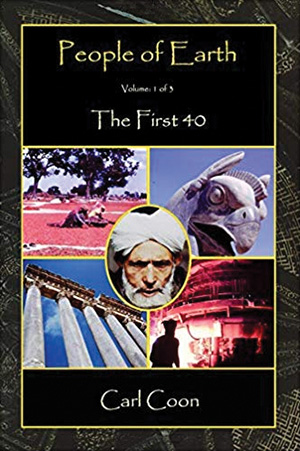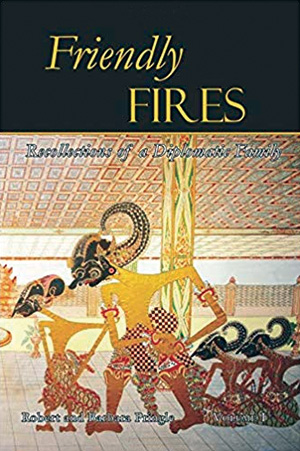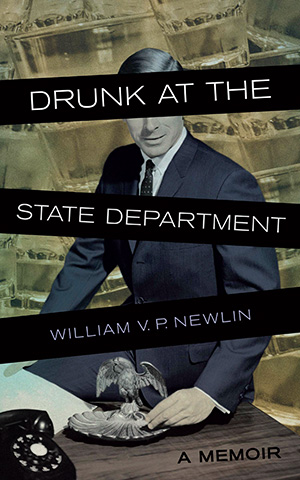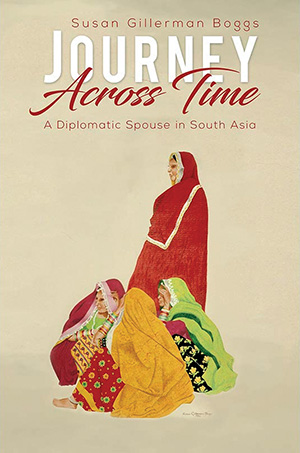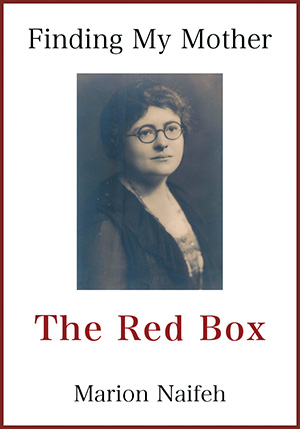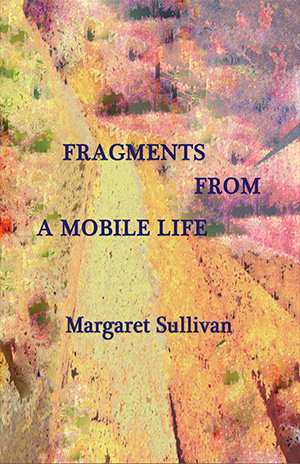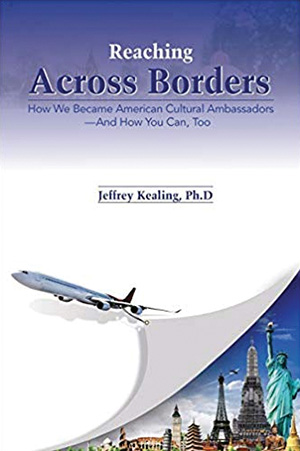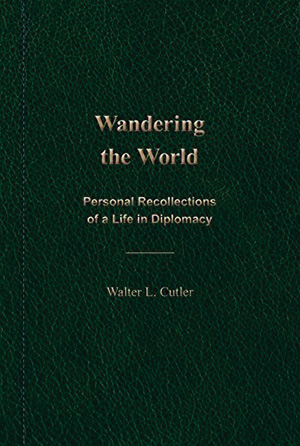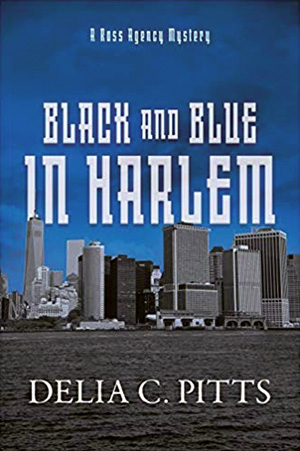In Their Own Write
We are pleased to present this year’s collection of books by Foreign Service members and their families.

The Foreign Service Journal is pleased to present our 18th annual Foreign Service authors roundup in plenty of time for holiday orders.
Our primary purpose in compiling “In Their Own Write” is to celebrate the wealth of literary talent within the Foreign Service community, and to give our readers the opportunity to support colleagues by sampling their wares. Each entry contains full publication details along with a short commentary. As has been the case for more than a decade, a majority of the titles are self-published.
Our annotated list of books—written, edited or translated by Foreign Service personnel and their family members in late 2018 and 2019—is not a comprehensive or definitive record of works by FS authors; we rely on the authors themselves to bring their books to our attention.
This year we’re featuring 46 volumes—7 works of history and biography, 8 books on policy and issues, 9 works of fiction and poetry, a potpourri of 5 works on food, parenting and expat life—and no fewer than 17 memoirs. As usual, we also include in this month’s focus a selection of recent books “of related interest” to diplomats and their families that were not written by FS authors.
For the few books that cannot be ordered through Amazon or other online outlets, we have provided the necessary contact information. This year’s roundup was assembled with the vital assistance of Publications Coordinator Dmitry Filipoff, Contributing Editor Steven Alan Honley, Associate Editor Cameron Woodworth, Managing Editor Kathryn Owens and AFSA Intern Caroline Quinn.
—Susan Brady Maitra, Senior Editor
BIOGRAPHY AND HISTORY
Lincoln, Antietam and A Northern Lost Cause
Gene Schmiel, independently published, 2019, $13.99/paperback, 202 pages.
What if, even after the Union had won the Civil War and Abraham Lincoln had issued the Emancipation Proclamation, slavery had remained legal in the United States?
In this thought-provoking speculative history, written in a “you are there” style using the words of the participants themselves, award-winning Civil War historian Gene Schmiel shows exactly how such a tragic outcome could have occurred.
He takes as his starting point the Battle of Antietam (Sept. 17, 1862), which was perceived as a victory for the Union—one that emboldened President Abraham Lincoln to issue the Emancipation Proclamation the following January. But had General Robert E. Lee made different tactical decisions and won that battle, he could have created what Schmiel calls a “Civil War butterfly effect” that irrevocably changed American history.
Schmiel reminds readers that Lincoln primarily intended the Emancipation Proclamation as an incentive for the states of the Confederacy to rejoin the Union—even if they did not abolish slavery. So, as he lays out in this book, that dreadful institution might well have endured even after the war’s end.
Gene Schmiel retired from the Foreign Service in 2002, after a 24-year career that included tours as chargé d’affaires in Djibouti, Bissau and Reykjavík, among many other assignments. Before joining the Service, he was an assistant professor of history at St. Francis University in Pennsylvania, and has taught at Marymount, Shenandoah and Penn State universities.
He has written and lectured about the Civil War since the 2014 publication by Ohio University Press of his award-winning book, Citizen-General: Jacob Dolson Cox and the Civil War Era.
Lions at the Legation & Other Tales: Two Centuries of American Diplomatic Life in Tangier

Gerald Loftus, illustrated by Lawrence Mynott, Tangier American Legation, 2018, $20/paperback, 54 pages.
For two centuries, U.S. diplomacy in Morocco—the first nation to recognize American independence—focused on Tangier. In 1821, when the legation building was given to the United States, it became the first American diplomatic property, earning the designation of being the only U.S. National Historic Landmark outside the United States.
Wonderfully illustrated and concisely organized, Lions at the Legation features key episodes in U.S.-Moroccan relations as viewed from the perspective of the legation in Tangier. From surviving French bombardment in 1844 to hosting President Teddy Roosevelt’s Great White Fleet in the early 20th century, Lions at the Legation captures an abundance of historical events.
The title of the book refers to an “emoluments” dilemma that transpired in the 1830s, when consuls were presented with lions as gifts from the Moroccan sultan to the U.S. president. As a distraught Consul Thomas Carr wrote to Secretary of State John Forsyth on Sept. 3, 1839:“I have exerted myself to the utmost to prevent the presentation of any animals from the Emperor … [but] they replied it was perfectly out of their power to prevent it, … that a Moorish agent who should thus refuse to convey a present to his master would very justly have his head cut off.”
Gerald Loftus, a Foreign Service officer from 1979 to 2002, served as director of the Tangier American Legation Institution for Moroccan Studies from 2010 to 2014. He has written about the long history of Moroccan-American relations on permanent display at the institution’s museum at www.TALIMblog.org. Lawrence Mynott is an English artist living in Tangier.
U.S.-Vatican Relations, 1975-1980: A Diplomatic Study
P. Peter Sarros, University of Notre Dame Press (ADST-DACOR Diplomats and Diplomacy Book), 2019, $50/hardcover, 496 pages.
The U.S. relationship with the Holy See has often been turbulent, but especially so from 1975 to 1980 when FSO P. Peter Sarros helped lead the U.S. mission at the Vatican as chargé and ambassador. During this short period, U.S.-Vatican relations experienced two American presidential administrations, three presidential envoys and three separate popes.
Drawing on official documents as well as Sarros’ diaries and notes, this unique book shows how the United States and the Vatican often worked together behind the scenes to influence major issues of the day.
Sarros sheds light on the Vatican’s response to the Iran hostage crisis, the Helsinki process and Cold War rivalries. Confidential consultations led by Sarros and U.S. envoys were ultimately successful in securing Vatican support on international issues.
Sarros concludes that U.S. diplomacy was largely successful during this period because it complemented the Vatican’s own international strategy of increasing its influence through supporting a global balance of power while also resisting the spread of communism in Europe.
P. Peter Sarros is a retired senior Foreign Service officer whose career spanned four decades. He served as chargé d’affaires and ambassador of the presidential mission at the Vatican from 1975 to 1980. He taught diplomacy at George Mason University and served as diplomat-in-residence at Johns Hopkins University’s School of Advanced International Studies.
Using Nature’s Shuttle: The Making of the First Genetically Modified Plants and the People Who Did It
Judith M. Heimann, Wageningen Academic Publishers, 2018, $32/paperback, 194 pages.
“Using Nature’s Shuttle is a delightful account of the history of GMOs … [told] through the eyes of the scientists working in Ghent, Belgium … on what is probably the greatest advance in agricultural biotechnology since the invention of agriculture,” says biochemist and Nobel laureate Sir Richard Roberts.
Judith M. Heimann conducted intensive interviews with more than two dozen of the individuals involved to present the story of a group of idealistic, young scientists at a public university in Belgium— often the first in their families to go to college—who made history in the realms of plant microbiology and molecular biology by harnessing a particular strain of million-year-old soil bacterium that could genetically modify certain plants in a particular way.
They and their colleagues and rivals then figured out how to use that knowledge to genetically modify a variety of plants to make them safer and healthier for man, beast and the environment. The modified plants were more affordable and simpler for farmers to grow and helped improve people’s overall well-being, especially in the developing world.
A former FSO and diplomat’s wife, Judith Heimann has spent most of her life abroad, including more than 20 years as a diplomat in Benelux countries. She is the author of Paying Calls in Shangri-La: Scenes from a Woman’s Life in American Diplomacy (2016), The Airmen and the Headhunters (2007) and The Most Offending Soul Alive (1999).
Masters of Mayhem: Lawrence of Arabia and the British Military Mission to the Hejaz
James Stejskal, Casemate, 2018, $32.95/hardcover, 304 pages.
T.E. Lawrence—Lawrence of Arabia— was one of the earliest practitioners of modern unconventional warfare. The tactics and strategies he developed during the Arab Revolt, which took place during World War I, were later used by revolutionaries like Mao Zedong and Nguyen Giap in their own wars of liberation. Both men kept Lawrence’s Seven Pillars of Wisdom close at hand.
James Stejskal’s book explores how Lawrence and the British Military Mission supported unconventional warfare in the Hejaz (the mountainous area of northwest Saudi Arabia that gave rise to early Islam and contains the sites of many holy places) during the Arab Revolt. To do this, they created the Hedgehog force and formed armored car sections and other units. This culminated in operations against the Ottoman Turkish Army that enabled Field Marshal Edmund Allenby to achieve victory in 1918.
James Stejskal is a military historian and conflict archaeologist who specializes in the research and investigation of irregular warfare. He is the author of numerous articles and two previous books: Special Forces Berlin: Clandestine Cold War Operations of the U.S. Army’s Elite, 1956-1960 (2016) and The Horns of the Beast: The Swakop River Campaign and World War I in South-West Africa, 1914-15 (2014).
He is the husband of Ambassador Wanda Nesbitt, a Foreign Service Career Minister who is currently dean of the FSI School of Language Studies.
The Knowable Past
Kenneth J. Dillon, Scientia Press, 2018, $25/paperback, 320 pages.
Approached from the right angle and with a little luck, the past will, upon occasion, reveal its secrets to us. Specifically, this book spells out the theory that the Earth originated in the outer solar system, and argues that tidal forces during approaches of Mars caused the great mass extinctions of our planet’s prehistory.
The Knowable Past revises and enhances the Venus Theory of Immanuel Velikovsky, which says that Mars has repeatedly come close enough to the Earth to set off various catastrophes. The book also investigates other mysteries from ancient and modern history, including the origins of the Etruscans, strategies of the world wars, the Cuban Missile Crisis, the John F. Kennedy assassination and the run-up to the 9/11 attacks.
This book is primarily geared to historical and scientific detectives, but it is not just for them. Anyone who seeks a better understanding of the past can find food for thought in it.
Kenneth J. Dillon served as a Foreign Service officer, with an emphasis in intelligence analysis. He has a Ph.D. in history from Cornell University and has taught at several universities, tried his hand at tech business and written books on history, science and medicine. A defender of orphan causes and targets of scientific rejectionism, he lives in Washington, D.C.
Modern Panama: From Occupation to Crossroads of the Americas
Michael L. Conniff and Gene E. Bigler, Cambridge University Press, 2019, $32.99/paperback, 364 pages.
Although the 1977 Carter-Torrijos Treaties set the stage for Panama finally to control all of its own territory, including the Panama Canal, little has been written about how the country has fared since then—both as the manager of a major waterway and as a sovereign nation in a turbulent region. Modern Panama seeks to fill this major gap in Latin American history.
Despite the country’s continued struggle with political corruption, Michael L. Conniff and Gene E. Bigler argue, changes since the turnover of the Canal have been largely positive. Panama has become a stable, functioning democracy with a growing economy and a higher standard of living.
Michael L. Conniff is a professor emeritus of history at San Jose State University. He is the author of A New History of Modern Latin America (2017, with Lawrence Clayton and Susan Gauss); Panama and the United States, 3rd ed. (2012) and Black Labor on a White Canal (1985).
Gene E. Bigler is a retired Foreign Service officer who worked on the transition of the Panama Canal from U.S. to Panamanian ownership. He has also taught political science and public policy analysis at Johns Hopkins University’s School of Advanced International Studies, the Instituto de Estudios Superiores de Administración in Caracas, Venezuela, and other institutions in the United States and Latin America.
POLICY AND ISSUES
Egyptian Advice Columnists: Envisioning the Good Life in an Era of Extremism
Andrea B. Rugh, DIO Press Inc., 2019, $32.95/paperback, 266 pages.
A few months after religious zealots assassinated President Anwar Sadat in 1981, the Al-Ahram newspaper launched a column responding to letters from Egyptians caught up in the problems of daily living. The columnist, Abdul Wahab al-Mutawa, a self-proclaimed humanist, published complaints about government services and offered solutions to personal problems. Al-Ahram also presented advice columns penned by religious sheikhs, most of them affiliated with Al-Azhar University, who sought to demonstrate Islam’s relevance to modern life.
This book, part of the publisher’s Critical Pedagogies Series, is the first to draw on this rich material to examine the columnists’ prescriptions for leading a good life and their modeling of moderation.
Andrea B. Rugh has been a technical adviser for USAID projects on the Middle East, South Asia and Africa, and was a research associate at Harvard University’s Institute of International Development from 1987 to 1994. She also worked for Save the Children and UNICEF in Pakistan and Afghanistan, and has written 13 books on the cultures and societies of the Middle East.
Mrs. Rugh is the wife of Ambassador (ret.) William A. Rugh, a 30-year Foreign Service veteran who served as chief of mission in Sana’a and Abu Dhabi.
US Democracy Promotion in the Arab World: Beyond Interests vs. Ideals
Mieczyslaw P. Boduszynski, Lynne Rienner Publishers, 2019, $85/hardcover, 240 pages.
Former FSO Mieczyslaw Boduszynski examines the role the promotion of democracy has played in American foreign policy since the Arab Spring uprisings in the early 2010s. The Obama administration, he notes, supported the promotion of democracy during the uprisings, but two years later retreated from democracy promotion in those affected countries.
What role democracy promotion should play in U.S. foreign policy remains a hot topic, particularly with regard to the Middle East, and the case studies here bring much food for thought. The author supplements his firsthand view of the Arab Spring as a U.S. diplomat in the region with a wide range of interviews with policymakers in Washington.
“Boduszynski’s analysis is lively and engaging and offers valuable insights into both the individual predispositions and the bureaucratic interests that led the United States to lean in at first, but then ultimately back away from a robust policy of democracy promotion,” says Michael Carpenter of the Penn Biden Center for Diplomacy and Global Engagement. “It also provides a compelling theoretical framework for understanding … how and why the U.S. came up short in its response to the Arab Spring.”
Mieczyslaw Boduszynski teaches U.S. foreign policy at Pomona College. Before that, he worked for the State Department, with postings in Albania, Kosovo, Japan, Egypt, Libya and Iraq. He is also a frequent op-ed contributor to publications such as The Washington Post, Foreign Affairs and The Los Angeles Times.
Ideology and Collapse: Risks of Climate Change Dismissal
William McPherson, independently published, 2019, $9.95/paperback, 254 pages.
As the consequences of climate change become more ominous, societies across the globe are threatened with collapse. Even so, the actions of individual governments thus far have not proven effective in reducing emissions of greenhouse gases. While there are many reasons for this, the principal issue is an ideology that prioritizes economic growth and untrammeled markets above all else, thereby preventing necessary actions to head off disaster.
This book examines the sources of this mindset, then discusses the specific reasons the Trump administration refuses to recognize and deal with the effects of global climate change— despite recent reports by the Intergovernmental Panel on Climate Change and the U.S. government’s own National Climate Assessment, which have all laid out the urgency of action in unmistakable terms.
The author also contributed three chapters to Climate Abandoned: We’re on the Endangered Species List (2019), edited by Jilly Cody. Covering the ideology of climate change denial, various myths and political failures, McPherson seeks to explain how the failure to act has often been encouraged through faulty interpretations of science.
William McPherson spent 21 years in the Foreign Service, serving in Japan, Korea, the Philippines, Switzerland and Washington, D.C., among other postings. In retirement, he has worked on international environmental issues and is an activist with the Sierra Club on climate change and coal exports. He has published three previous books: Ideology versus Science (2014), Climate, Weather and Ideology: Climate Change Denial (2015) and Sabotaging the Planet: Denial and International Negotiations (2016).
Mongolia’s Foreign Policy: Navigating a Changing World
Alicia Campi, Lynne Rienner Publishers, 2019, $85/hardcover, 349 pages.
Strategically located at the crossroads of Central Asia, China and Russia, Mongolia has long attracted the attention of major world powers. How does this traditionally nomadic, but resource-rich, country envision its place in the modern world? And as it prepares to mark its 30th year as an independent democracy, what challenges does it face?
To answer these questions, Alicia Campi offers a multifaceted examination of the context, formulation and execution of contemporary Mongolian foreign policy. She posits that Mongolia operates in accordance with what she calls a “Wolf Strategy,” whose goal is to ensure that the nation does not become economically or politically dependent on any single power.
Robert Bedeski of the University of Victoria hails Mongolia’s Foreign Policy as “a must-read” and “a superb study of the challenges and responses of liberated and democratic Mongolia. [In its pages] Campi gives voice to the dilemmas facing this strategically positioned nation.”
A former State Department Foreign Service officer and FSJ business manager, Alicia Campi is the longtime president of the Mongolia Society and the U.S.-Mongolia Advisory Group. She also heads the Chinggis Khan Foundation and teaches at Johns Hopkins University’s School of Advanced International Studies and at the Foreign Service Institute.
Ms. Campi is the author of The Impact of China and Russia on United States-Mongolian Political Relations in the Twentieth Century (2009).
North Korea: What Everyone Needs to Know
Patrick McEachern, Oxford University Press, 2019, $16.95/paperback, 244 pages.
The largely ceremonial meetings between President Donald Trump and North Korean strongman Kim Jong Un, and the unpredictability of both parties, have done little to quell concerns that the Korean Peninsula’s security situation is an intractable conflict. And that realization, in turn, raises the question, “How did we get here?”
This primer by FSO Patrick McEachern unpacks the contentious and tangled relationship between the Koreas in an approachable question-and-answer format. Among the many topics he addresses:
Why have the two Koreas developed politically and economically in such radically different ways? How have three generations of the authoritarian Kim dictatorship shaped North Korea? What is the history of North-South Korea relations? Why did the North Korean government develop nuclear weapons? How do powers such as Japan, China and Russia fit into the mix? What is it like to live in North Korea and South Korea?
Patrick McEachern has been an FSO for 16 years, serving in Seoul (where he was the chief political officer monitoring developments in North Korea), Tokyo, Bratislava and Washington, D.C., where he was a North Korea intelligence analyst for the State Department’s Bureau of Intelligence and Research.
Currently the unit chief for Nepal, Sri Lanka and Bangladesh in the Bureau of South and Central Asian Affairs, he previously served as a Council on Foreign Relations International Affairs Fellow at the Wilson Center in Washington, D.C. He is co-author of North Korea, Iran and the Challenge to International Order (2017) and author of Inside the Red Box: North Korea’s Post-totalitarian Politics (2010).
He is the author of this month’s FSJ cover story, “What Does North Korea Want?”.
From War to Peace in the Balkans, the Middle East and Ukraine
Daniel Serwer, Palgrave Macmillan, $31/hardcover, 145 pages.
This open-access book focuses on the origins, consequences and aftermath of the 1995 and 1999 Western military interventions that led to the end of the most recent Balkan Wars, highlighting the lessons that can be applied to the Middle East and Ukraine, where similar conflicts are threatening national sovereignty and territorial integrity.
Informed by the experience of a diplomatic practitioner, this book is an accessible treatment of what causes wars and how to make peace. A volume in the Palgrave Critical Studies in Post- Conflict Recovery series, it is ideal for all readers interested in how violent international conflicts can be managed. For a full review of the book, click here.
Daniel Serwer’s 21-year Foreign Service career culminated with assignments as deputy chief of mission and chargé d’affaires in Rome from 1990 to 1993, and special envoy and coordinator for the Bosnian Federation from 1994 to 1996. He is a professor and director of the Conflict Management Program in Johns Hopkins University’s School of Advanced International Studies.
In 2012, with David R. Smock, he co-authored Facilitating Dialogue: USIP’s Work in Conflict Zones; the following year, Potomac Books published his book, Righting the Balance: How You Can Help Protect America. Last year, I.B. Tauris brought out his The Balkan Solution.
Why Peacekeeping Fails, 20th Anniversary Edition
Dennis C. Jett, Palgrave Macmillan, 2019, $24.99/paperback, 326 pages.
Since the first edition of Why Peacekeeping Fails was published in 1999, the number of United Nations peacekeepers has risen from 15,000 to 100,000, and their missions have become more dangerous and more complex, according to author Dennis C. Jett. Peacekeepers today are dying in record numbers and are engaged in missions that are “virtually impossible to bring to a successful conclusion,” he writes, in this thoroughly revised 20th-anniversary edition, half of which is new material.
The United Nations spends nearly $7 billion annually on 14 peacekeeping missions around the globe. Jett examines why the dramatic increase in peacekeeping has occurred, and how terrorism has affected both recent and long-standing peacekeeping operations. He also assesses the prospects of peacekeeping at a time when the United States seems to be withdrawing from the world.
Jett argues that neither U.N. peacekeepers nor governmental violence can prevent the conditions that lead to violent extremism and the need for peacekeeping forces. Unstable countries with weak economies and ineffective governance won’t act by themselves, he argues. The international community should apply strong and consistent economic and political pressure and sanctions to promote positive chances, he adds. Aid or trade with such countries should be tied to better governance, human rights and adherence to democratic norms.
Dennis Jett is a professor of international affairs at Penn State University. His 28-year career in the Foreign Service included service as ambassador to Peru and Mozambique, and assignments in Argentina, Israel, Malawi and Liberia.
Kissinger on Kissinger: Reflections on Diplomacy, Grand Strategy, and Leadership
Winston Lord, St. Martin’s Press, 2019, $25.99/hardcover, 176 pages.
Foreign Service Journal readers certainly need no introduction to Henry Kissinger. But nearly a half-century after he transformed America’s approach to diplomacy with China and Russia, laying the foundation for geopolitics as we know it today, escalating tensions are threatening a swift return to the same diplomatic game of tug-of-war that Kissinger played so masterfully.
Kissinger on Kissinger is a series of faithfully transcribed interviews conducted by the elder statesman’s longtime associate, Winston Lord, which offer Kissinger’s thoughts on the specific challenges that he faced during his tenure as national security adviser and Secretary of State, his general advice on leadership and international relations, and stunning portraits of the larger-than-life world leaders of the era.
The result is a frank, informative overview of U.S. foreign policy during the first half of the 1970s—essential reading for anyone hoping to understand today’s global challenges.
Winston Lord served in the U.S. Foreign Service and the Defense Department early in his career before serving as Henry Kissinger’s special assistant at the National Security Council during the Nixon administration. He later directed the State Department’s Policy Planning Staff, served as ambassador to China and as assistant secretary for the Bureau of East Asian and Pacific Affairs. He is currently chairman emeritus of the International Rescue Committee.
MEMOIRS
Active Diplomacy to Achieve US Objectives 1960-1991, in Central America, Washington, Panama, and Argentina
John A. Bushnell, XlibrisUS, 2018, $26.99/paperback, 720 pages.
In this book, John A. Bushnell recounts more than 30 years as a Foreign Service officer with a focus on South and Central America.
Joining the Foreign Service in 1959, he served early on as an economic officer in Bogotá, Santo Domingo and San José. By 1977 he had risen through the ranks to deputy assistant secretary for inter-American affairs, and later to deputy chief of mission in Buenos Aires.
In 1989, he was named chargé d’affaires in Panama, ahead of the U.S. invasion of Panama to restore the democratically elected government of Guillermo Endara and arrest dictator Manuel Noriega. He received a Presidential Meritorious Service Award from President George H.W. Bush in 1991.
“The culmination of my career was the use of the various skills I had acquired over 30 years in the management of the situation in Panama during the tricky period before the attack, [during] the attack, and getting the new government going thereafter,” Bushnell says of this experience. “In particular I am proud of getting the embassy relationships with our military right in this sensitive situation where the deficiencies in the civil-military relationships had been a problem for a long time.”
Bushnell’s work to make the Kennedy Alliance for Progress more effective and his efforts to support Argentina’s return to democracy are also covered. The book is based on the author’s oral history as recorded by the Association for Diplomatic Studies and Training.
The Back Channel: A Memoir of American Diplomacy and the Case for Its Renewal
William J. Burns, Random House, 2019, $32/hardcover, 512 pages.
Revered in the Foreign Service community, Ambassador William J. Burns has written a powerful book that shows us why. “Far more than a memoir of Burns’ activities and experiences overseas and in Washington,” as Ambassador Bob Beecroft notes in his review in the September FSJ, “it is also a powerful and timely advocacy piece for committed and informed diplomatic action in support of American interests and principles around the world.”
In this book, Burns treats the reader to evocative, penetrating portraits of diplomatic counterparts and adversaries, from James Baker and Richard Murphy to Muammar Gaddafi and Vladimir Putin; and he traces the ups and downs of U.S. foreign relations through the Reagan, Bush 41, Clinton, Bush 43 and Obama administrations.
In addition, the back of the book features a fascinating collection of recently declassified cables and memos written by Ambassador Burns on the critical issues of the day.
Burns’ remarkable career from 1981 to 2014 includes his years as Deputy Secretary of State, under secretary for political affairs, executive secretary of the department, ambassador to Russia and Jordan, acting director of policy planning, and NSC senior director for Near East and South Asia. He holds the highest rank in the Foreign Service as a career ambassador. He and his wife, former FSO Lisa McCarty, have two daughters.
A Seat in the Front Row: Recollections of a Foreign Service Officer in the Cold War
Wolfgang J. Lehmann, independently published, 2019, $22.99/paperback, 220 pages.
Taking readers from the Anzio beachhead in 1944 to the rooftop of the U.S. embassy in 1975 Saigon, this expansive memoir recounts the wide-ranging life of a Foreign Service officer who did indeed occupy a front-row seat during the Cold War.
In its pages, Wolfgang J. Lehmann recounts his role in implementing postwar refugee policy, and his years as political adviser to the Bureau for European Affairs, the North Atlantic Treaty Organization and U.S. European Command. He also served as deputy chief of mission at Embassy Saigon and played a crucial role in the U.S. evacuation of Vietnam in April 1975, among many other Foreign Service assignments.
Wolfgang J. Lehmann was a Foreign Service officer with the Department of State from 1951 until 1983. He continued his professional activities for another 18 years after that as an independent national security and foreign affairs consultant, concentrating primarily on political and military war-gaming. Beginning in 1983, he organized and chaired the international political teams for the annual Naval War College Global War Game. He died in 2018.
Walter G. Lehmann, the author’s nephew, edited the manuscript after his passing and contributed an introduction. An attorney and business consultant for more than 18 years, he is managing partner of the entertainment law firm Lehmann Strobel PC.
People of Earth: The First Forty
Carl Coon, independently published, 2018, $20/paperback, $9.99/Kindle, 393 pages.
A collection of vignettes, People of Earth attempts to answer, as Carl Coon writes, the “big ‘why’ questions.” In “Preview,” the author plainly states his intention to make sense of his experiences in the hope they will lead to an understanding of humanity.
This desire is apparent—while he reminisces about a life unusually led, Coon looks toward how it fits with the human experience and what that means. Throughout his retelling of these years, Coon celebrates all humanity in uplifting and engaging prose.
An insatiable curiosity and ambitious quest for answers drive this memoir. Coon describes in vivid detail his “first 40 years”: an unconventional upbringing by adventuresome parents, his days in the Army during World War II and then life in postwar Germany, and his time at post in Syria, Morocco, India and Iran, among other countries.
From a young age, Carl Coon traveled around the world with his father, an accomplished anthropologist. He graduated from Harvard University in 1949 with a degree in geography. From 1949 to 1985, he served in the U.S. Foreign Service; his last post was as ambassador to Nepal. In 2013, in recognition of his work with the American Humanist Association, he received its Lifetime Achievement Award.
Carl Coon passed away on Dec. 3, 2018, at age 91, several months after contacting the Journal about the completion of this first volume of his autobiography. The second volume, People of Earth: The Second Passage, containing essays by Carl Coon and his second wife, Jane, an FSO, about their diplomatic careers and life, was independently published in May 2019.
Friendly Fires: Recollections of a Diplomatic Family, Vols. I & II
Robert and Barbara Pringle, Piscataqua Press, 2018, $29.99/ hardcover, 446 pages and 442 pages, respectively.
In this two-volume memoir, Robert and Barbara Pringle relate decades worth of diplomatic work and life.
Whether meeting with local representatives of political Islam in Indonesia or serving as the right-hand man to the director of the State Department’s Bureau of Intelligence and Research, Robert Pringle’s expansive diplomatic career put him on the frontlines of foreign policy decision-making, both in Washington and abroad.
Beside him through it all was Barbara, a loving and understanding wife who not only was supportive but at times instrumental to effective diplomacy.
A major objective of the authors is to highlight the role of a modern spouse in a diplomatic career. Through their different skill sets and personalities, the Pringles were able to complement each other and manage the challenges of overseas living. From flat plane landings and insects in hotel rooms to episodic malaria, Robert and Barbara were able to weather the tribulations of living abroad in hard places.
Robert Pringle retired after 37 years in the Foreign Service. His career included postings in Indonesia, Upper Volta (now Burkina Faso), Papua New Guinea, the Philippines, South Africa and Mali, where he served as ambassador. Pringle earned a Ph.D. in Southeast Asian history from Cornell University.
Barbara Pringle retired from her teaching career in 2003.
Crossing the Sahara Desert
Paul Pometto, Word Association Publishers, 2018, $14.95/paperback, 66 pages.
Having just completed a two-year program as a U.S. Peace Corps Volunteer in West Africa in 1976, Paul Pometto decided to take the long way home. After studying Michelin maps and borrowed guidebooks, he crossed the Sahara Desert, took a boat to Italy and then flew back to Washington, D.C.
His monthlong journey brought him strong cross-cultural friendships, physical exhaustion, priceless vistas and deep frustrations. Hospitalized overnight in a small clinic in Tamanrasset, Algeria, he unhooked himself from an intravenous line to catch a bus that ran only once a week toward the Tunisian border. Most of the memoir is based on the author’s day-by-day recollection of the journey, with very few edits.
Over a 42-year government career, Paul Pometto held positions at State as a civil servant, general services specialist and management-coned Foreign Service officer. He spent most of his career in Africa and Europe, serving as deputy chief of mission in Praia, Djibouti and Paris, among many other postings.
Before retiring from the Senior Foreign Service in 2016 at the rank of Counselor, he served in Fort Lauderdale as director of the State Department’s Florida Regional Center—a collaborative effort involving more than 130 employees, 11 bureaus and two U.S. Marine Security Guard companies.
Mr. Pometto resides in San Diego but continues to travel widely. He has already visited 146 nations.
Drunk at the State Department
William V.P. Newlin, Four Winds Press, 2019, $17/paperback, 288 pages.
In this candid memoir, which he markets as “Mad Men meets the Foreign Service,” William V.P. Newlin recounts his 25-year Foreign Service career as an alcoholic who spent considerable energy hiding his drinking from his wife, children and bosses.
Growing up in high-society Philadelphia and summering in Bar Harbor, Maine, Newlin was surrounded by adults who made cocktails seem glamorous. At boarding school and Harvard, he developed a habit of secret drinking; he continued it at his first diplomatic posting in Paris, and all the way through a career that saw him become consul general in Nice in 1983.
Newlin claims his Foreign Service career was “completely undistinguished,” largely because he was drunk most of the time. But not once did a boss or colleague call him on the drinking. “I don’t know how many others of me there were,” he says.
Newlin’s wife, Louisa, who writes the afterword, says Newlin wrote the book to “exorcise his demons,” and that he has been sober for 30 years. While he still feels enormous guilt over his drinking, she notes, “he did some fine work for State, and it is time for him to stop beating himself up.”
The couple recently celebrated their 63rd anniversary. William Newlin retired from the Foreign Service in 1986. Since then he has written a book about lakes on Mount Desert Island, Maine; mediated in the District of Columbia court system; and for his 80th birthday, sailed across the Atlantic on a Norwegian tall ship.
Journey Across Time: A Diplomatic Spouse in South Asia
Susan Gillerman Boggs, Austin Macauley Publishers, 2019, $23.95/paperback, $4.95/e-book, 463 pages.
For 14 years Susan Gillerman Boggs joined her Foreign Service officer husband on five separate tours of duty in South Asia. This memoir chronicles the frustrations and delights of diplomatic life in a culturally fascinating part of the world.
Drawn from hundreds of letters the author wrote home, Journey Across Time takes readers through eventful times as the author witnessed massive floods, bomb blasts and the aftermath of politically motivated violence. She describes the view from overseas of Y2K and 9/11.
Journey Across Time features the vibrant festivals and the notoriously chaotic driving of South Asia. These journeys to remote places evoked a sense of thankfulness and appreciation as Boggs came to realize how so many things Americans often take for granted are hard-earned in the developing world.
The author had the opportunity to meet many unusual individuals along the way, from kings, artists and movie stars to Mother Teresa, maharajas and politicians. She portrays them all in lively and compassionate prose.
Susan Boggs is a singer, artist and author who served on the boards of the American Women’s Association in New Delhi and Colombo as vice president for programs. She also served on the board of the Women’s International Club in New Delhi as the newsletter editor.
Journey Across Time is available from the publisher: austinmacauley.com.
Cotton Fields to Summits: The View From Contested Ground
George Kennedy, SETAF Publishing, 2017, $20/paperback, 426 pages.
Cotton Fields to Summits tells the story of author George Kennedy’s journey from the cotton fields of South Carolina as a child to the heights of international diplomacy in the 1990s, when he served as consul general in Toronto during the implementation of the North American Free Trade Agreement.
Throughout his military and Foreign Service career, Kennedy participated in or witnessed numerous historic events. He was on military duty in northern Italy when the Berlin Wall was erected in 1961, and he saw close-up the impact of President John F. Kennedy’s assassination on the German people while assigned to Embassy Bonn. He watched the buildup to the U.S. involvement in Vietnam in 1965 during a tour in the Philippines and Secretary of State Henry Kissinger’s shuttle diplomacy in Rome to try to end the Vietnam War in 1973.
As deputy assistant secretary, he witnessed Nelson Mandela’s history-making visit to the State Department in 1990 and represented the State Department during White House planning sessions that led to the Gulf War in 1991. He served as a senior adviser to Ronald H. Brown, the first African American Secretary of Commerce.
Kennedy discusses his “Chorus of Angels,” people in his life who guided him through an unlikely career during which he experienced great heights of success, as well as disappointing setbacks. He talks about how life is ultimately about choices, and how people should bring their best possible judgment to the choices they make.
Muddy Roads Blue Skies: My Journey to the Foreign Service, From the Rural South to Tanzania and Beyond
Vella Mbenna, Muddy Roads Press, 2019, $16.99/paperback, 228 pages.
As a child, Vella Mbenna loved to gaze at the clouds and dream of exploring the world beyond the back roads of her rural Georgia hometown. But after a failed marriage left her jobless, broke and with a young child to care for on her own, Mbenna moved back in with her parents. Desperate to make a better life for herself and her son, she accepted a job in the U.S. Foreign Service. Though she had never dreamed she would become a diplomat, she went on to enjoy a 26-year career as an information management officer.
Along the way, Mbenna was forced to battle sexism, prejudice and numerous professional setbacks. But she refused to give up. She advanced through the ranks from an FS-9 to an FS-1. She earned a heroism award for her actions after the 1998 bombing of the U.S. embassy in Tanzania (her efforts were central to restoring essential communications with Washington). She also received an Equal Employment Opportunity Award in 2015 for her EEO work at Embassy Tunisia during her last assignment before retiring.
Mbenna’s message is that wherever you are in life right now, you can still go further and reach your highest calling. The book is part motivational memoir and part how-to guide to success. Each chapter focuses on a theme, ranging from dreams and perseverance to forgiveness and gratitude.
Finding My Mother: The Red Box
Marion Naifeh, independently published, 2019, free/online.
In Finding My Mother, published and available at the author’s website (marionnaifeh.com), Marion Naifeh channels a deep sense of loss into an active search for belonging. Having experienced her mother’s passing at a very young age, Naifeh laments not knowing much about Carolyn March Lanphear—until the arrival of a hand-me-down, a red box.
In it are her mother’s letters, artifacts, photographs and drawings from a decade spent in China, working as a missionary alongside her husband, B.W. By way of this unique collection of objects, Carolyn comes to life, and so do Chinese culture and history.
Carolyn’s China was a politically fragmented country on the brink of civil war, and Naifeh smartly shares her father’s grounded reflections with the reader to fill in the current events, which only enhance Carolyn’s perceptive descriptions of life there.
By the last chapter, the reader—and most important, Naifeh—is comfortably familiar with Carolyn March Lanphear and her journey to the heart of early 20th-century China.
Marion Naifeh has spent most of her life abroad, teaching English and English literature for nearly six decades at such institutions as the University of Benghazi, Paul H. Nitze School of Advanced International Studies at Johns Hopkins University and Beijing’s Second Foreign Language Institute.
She and her late husband, FSO George Naifeh, were posted in Iran, Iraq, Libya, Nigeria, Pakistan, Jordan and China. She is also the author of The Last Missionary in China (2003) and an autobiography, Foreign Service (2016). She lives in Aiken, South Carolina.
No Ordinary Life: Awakenings in the Final Days of Apartheid
Mary Ann Byron with Lori Windsor Mohr, Mountain High Publishing, 2018, $16/paperback, 310 pages.
In 1992 Mary is climbing America’s corporate ladder for luxury hotel management, while her soon-to-be-husband, Patrick, is handling sensitive security matters as a Diplomatic Security Service special agent in Washington, D.C. August of that year will upend their life together, however. They will wed and then leave friends and family for Cape Town, where Patrick is on assignment for two years.
All too soon she will be forced to reconcile the pastoral South Africa she knows from the film Out of Africa with the South Africa she meets under apartheid. Life will not be as she imagined. Deftly melding personal narrative with political history, Mary writes here of her and Patrick’s time in Cape Town with sensitivity and maturity.
Indeed, within the first pages of No Ordinary Life, on seeing army tanks rolling through the downtown she grasps the gravity of her new situation. This will not be an adventure of her own making but a “political pressure cooker” that tests her mettle. Mary’s relationships with colleagues and her husband will face tremendous stress in these two turbulent and historic years culminating in Nelson Mandela’s election as president—years that bring about her own “awakening.”
Raised in Minnesota, Mary Ann Byron has worked in public relations around the world. In Cape Town she was a community liaison officer and USAID project coordinator at the U.S. embassy. She and her husband, Patrick, live in Colorado.
Fragments From a Mobile Life
Margaret Sullivan, Red Mountain Press, 2018, $25.95/paperback, 342 pages.
Foreign Service spouse Margaret Sullivan, a columnist for the Huffington Post whose work has appeared several times in The Foreign Service Journal, has assembled a rich collection of more than six dozen essays about life in 10 countries, in 29 homes, with four kids and more than 60 years of marriage to a career diplomat.
Sullivan’s travels took her around the equator, including Burma, India, Malaya, Nigeria, Indonesia, the Philippines, Sierra Leone and Singapore. Her experiences span changes in the postcolonial world and women’s lives over several decades.
She learned early on that on top of raising kids and hosting representational events, she needed “portable pursuits” in the days before Foreign Service wives were allowed to be employed. In Sierra Leone, she and a female photographer traveled all over the country to write a book, meeting with people who made everyday things such as baskets, hand weavings and fish nets. While the book was never published, the collection of items they gathered made its way to the Smithsonian.
When a tsunami devastated Sumatra in 2004, the United States Indonesia Society asked Sullivan to help rebuild the educational system that had been destroyed by the disaster. The result was the University of Syiah Kuala Laboratory School, a high school that admitted its first class in 2007.
Born in China to American parents, Sullivan is also the author of Can Survive, La: Cottage Industries in High-Rise Singapore (1993) and a children’s book, The Philippines: Pacific Crossroads (1993).
Reaching Across Borders: How We Became American Cultural Ambassadors and How You Can, Too
Jeffrey Kealing, William Charles Press, 2019, $13/paperback, $5.99/Kindle, 240 pages.
In this memoir, former FSO Jeffrey Kealing retraces the three decades he and his wife and fellow FSO, Shelly, spent working around the world to make a plea for forming a common connection with people of many nations as globalization draws them closer than ever before.
Reaching Across Borders takes readers on adventures through Romania, Thailand and Japan. Witness the world through the eyes of a couple taking on a variety of interesting assignments whether it be serving as an election monitor in Bucharest, publishing for Japanese businesses or working in a community liaison office in Bangkok. All throughout their experiences they learned the particulars of various cultures, discovering how to bond and succeed no matter the context.
The experience taught them the value of being cultural ambassadors for America. Motivated in part by growing hostility toward globalization and the related political retrenchment today, the author harkens back to the immediate postwar institutions and sentiments that helped create a more connected world, and aims to show how cultural acuity and respect are becoming ever more necessary and fundamental to the human experience.
Jeffrey Kealing has worked as a diplomat, a professor, reporter and editor. He holds a Ph.D. in international education from the University of Southern California in Los Angeles.
Two Lifetimes As One: Ele and Me and the Foreign Service
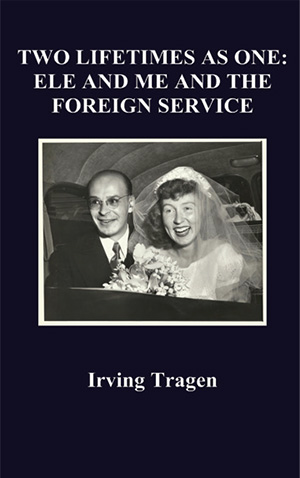
Irving Tragen, BookPatch, 2019, $36.95/hardcover, 763 pages.
In this touching autobiography that covers decades of marriage and service abroad, Irving Tragen tells the story of a diplomat who could not have carried out his difficult assignments without the support of his loving wife, the late Eleanor “Ele” Dodson.
Irving, who suffered severe hearing loss from the aftereffects of scarlet fever, recounts their odyssey from their first meeting and marriage in 1947 through a dozen assignments in the U.S. Foreign Service and the Organization of American States.
Irving worked in all 33 Latin American and Caribbean countries during a career that spanned nearly 60 years, with a focus on diplomacy, development and the fight against drug trafficking. In Two Lifetimes As One, Irving details those assignments, what he learned and how Ele made all the difference.
Irving Tragen served as a Foreign Service officer for 35 years, including senior posts in Latin America and the Caribbean. He lives in retirement in San Diego, where he remains engaged in building friendship and understanding between the United States and Latin America.
This book is part of the Association for Diplomatic Studies and Training’s Memoirs and Occasional Papers Series.
Bridge Between Worlds: A Lebanese-Arab American Woman’s Journey
Hala Lababidi Buck, Scarith/ New Academia Publishers, 2019, $32/paperback, 356 pages.
A professional artist, integrative therapist and diplomatic spouse, Hala Lababidi Buck embarks on a voyage to her birth country to rediscover her roots in Lebanon, a nation that is itself a bridge between East and West. A personal story of searching for home and connecting with heritage, Bridge Between Worlds is a multifaceted memoir of personal discovery and cultural exploration.
Through poetry, storytelling and art therapy, the author canvasses the transient life that took her across numerous Arab countries. As she discovers what it means to be a multicultural individual embracing Muslim and Christian identities, she searches for life’s meaning and purpose.
Hala Buck grew up in Lebanon and earned a B.A. in art education from the American University of Beirut. She has traveled to 14 Arab countries and accompanied her Foreign Service officer husband, Steve, in seven. Her watercolors have been exhibited internationally, and she has worked as a State Department interior designer. Hala earned an M.A. and taught at Bowie State and George Washington University, and is a board-certified counselor and licensed clinical professional counselor.
Her memoir is a volume in the Association for Diplomatic Studies and Training’s Memoirs and Occasional Papers Series.
Wandering the World: Personal Recollections of a Life in Diplomacy
Walter Cutler, 2017, independently published, $14.99/Kindle, 326 pages.
In this engrossing memoir, career diplomat and former ambassador Walter Cutler takes readers into highly charged diplomatic scenes around the world.
Among his many diplomatic endeavors, Cutler recalls working diligently on the Paris Peace Accords, studiously analyzing intelligence reports and propaganda coming out of Hanoi and working with senior leadership at State on crafting negotiation strategy—until he, and virtually everyone else at State, learned that the real negotiations were being carried out in secret between Le Duc Tho and Henry Kissinger.
Cutler twice served as ambassador to Saudi Arabia in the late 1980s, helping manage an often-difficult relationship amid intense regional conflict; as ambassador to Tunisia and Zaire (now Democratic Republic of the Congo); and as ambassador-designate to the Islamic Republic of Iran before diplomatic relations were broken in 1980.
He opened the first American post in Yaoundé, served as political officer in Algiers just after Algeria’s independence, and as political-military officer in Seoul at the time of North Korea’s capture of the USS Pueblo, among many other assignments.
The episodes captured in this lively anecdotal history are at once enlightening, humorous and contemplative.
Walter Cutler currently resides in Washington with his wife, Isabel, and is a member of the Council on Foreign Relations, the American Academy of Diplomacy and the American Foreign Service Association. He served as president of Meridian International Center from 1989 to 2006.
FICTION AND POETRY
Baobab
Larry Hill, First Edition Design Publishing, 2019, $14.95/paperback, 326 pages.
Larry Hill certainly captures the reader’s attention on the very first page of his second novel, Baobab:
“Doctor Michael Eisenstat knew he’d have to fight falling asleep as the ambassador entered the room for his country team meeting. He often dozed, as there was rarely anything of interest for him at these regular Tuesday morning confabs.
“‘Ladies and gentlemen, we’ve got 72 hours to leave the country,’ Holden Fairchild III, representative of the president of the United States of America to Zinani, declared unexpectedly. Eisenstat’s concern about nodding off vanished.”
As we find out in flashbacks, the good doctor had only recently closed his thriving private practice in Beverly Hills and joined the Foreign Service in search of adventure. His first posting is Zinani, a landlocked West African nation controlled by a ruthless dictator—at least for the moment.
Larry Hill, M.D., is a retired internist who spent 18 years in private practice in rural California and then joined the Foreign Service as a regional medical officer. He served in Mali, Bangladesh, the Philippines, South Africa and China before retiring, and now teaches medical students at his alma mater, the University of California at San Francisco.
His previous novel, Philanthropist (2015), was a thriller about crime and aging.
The Black Forest

H.K. Deeb, Kindle Direct Publications, 2019, $10.99/ paperback, $3.99/Kindle, 205 pages.
Inspired by the paintings of Léon Spilliaert and the works of Patricia Highsmith, The Black Forest ushers in a plethora of secrets and riddles as mysterious as the characters examining them.
Barbara is a German police officer on an assignment well below her paygrade. Eben, a student from Kansas, exudes idealism. Bill is an American professor with a checkered past.
Their narratives come together in Freiburg, a German university town near the legendary Black Forest, where a local woman’s sudden disappearance suggests much more is at play.
FSO Hadi K. Deeb is currently posted in Tashkent, and has served in Baku, Manila, Mexico City and Moscow. He spent two years in Freiburg prior to joining the State Department. The Black Forest is his third novel; he is also the author of A Banker’s Tale (2018) and The Haven (2017).
Crown of Coral and Pearl
Mara Rutherford, Inkyard Press, 2019, $18.99/hardcover, 384 pages.
For generations, the princes of Ilara have married the most beautiful maidens from the ocean village of Varenia. But though every girl longs to be chosen as the next princess, the cost of becoming royalty is higher than any of them could ever imagine.
Nor, this young adult novel’s intrepid heroine, once dreamed of seeing the wondrous wealth and beauty of Ilara, the kingdom that’s ruled her village for as long as anyone can remember. After a childhood accident leaves her with a permanent scar, however, that honor was set to go to her identical twin sister, Zadie—while Nor remained behind in Varenia, never to set foot on land.
Then Zadie is gravely injured, and Nor is sent to Ilara in her place. To Nor’s dismay, her future husband, Prince Ceren, is forbidding and cold. As she grows closer to Ceren’s brother, the charming Prince Talin, Nor uncovers startling truths about a failing royal bloodline, a murdered queen and a plot to destroy the home she was once so eager to leave.
Mara Rutherford began her writing career as a journalist but quickly discovered she far preferred fantasy to reality. Originally from California, she has lived all over the world alongside her Marine-turned-diplomat husband. Crown of Coral and Pearl is her first novel.
Crosshairs
George Kennedy, SETAF Publishing, 2018, $20/paperback, 393 pages.
This gritty novel, set mainly during the second half of the George W. Bush administration, traces the historic rise of a little-known African American political strategist, Reginald Branson, to the White House.
Narrated by Alfred Turner, a Senior Foreign Service officer who is Branson’s best friend, the story of the first black president’s rise to power is replete with fist-pumping highs and mind-numbing lows. There is a sense of magical realism about Branson’s total devotion to his wife, Josephine, and the power of their partnership to transform lofty and improbable dreams into reality.
George Kennedy is a retired Senior Foreign Service officer whose diplomatic career took him to seven countries and culminated in his appointment as consul general in Toronto. He has kept busy after retirement as a political adviser to several elected officials, an adviser to small- to medium-sized enterprises regarding opportunities in overseas markets and an independent business owner.
Kennedy’s previous book, the memoir Cotton Fields to Summits: The View from Contested Ground (SETAF Publishing, 2018), is featured above.
Death in Delmarva
Caroline Taylor, Black Rose Writing, 2019, $18.95/paperback, 219 pages.
Daphne Dunn works as a lowly stockroom clerk in her cousin’s Foggy Bottom grocery store. She’s also required to play bill collector to customers who aren’t paying for their food, including pregnant Beatriz Cabeza de Vaca, who used to keep house for Daphne’s family in better times.
When Beatriz is stabbed to death outside her apartment, Daphne learns the baby has survived and she sets out to find its missing father. She gets sidetracked when a friend facing life-threatening surgery asks Daphne to locate his sister, Charlie. Except for her lip ring and a nasty drug habit, Charlie could be Daphne’s twin.
The search for both people leads Daphne to the Delmarva Peninsula and a woman so desperate to cover up her crimes that she is willing to kill anyone in her way. But in the pursuit of justice, a girl’s gotta cut a few corners…
Caroline Taylor is the author of four mystery novels and a nonfiction book. She also published a collection of short stories, Enough! Thirty Stories of Fielding Life’s Curve Balls, in 2018; her entire output of short stories is available at www.carolinestories.com. A member of the Foreign Service from 1969 to 1972, Ms. Taylor served in Tel Aviv and Quito.
Regrets
Juan M. Bracete, Dorrance Publishing Company, 2019, $15/paperback, 176 pages.
We never learn the surname of Albert, the protagonist of Regrets, but we get to know virtually everything else about him. As the novel’s title implies, Albert strives to build a fulfilling life despite childhood sexual trauma, which interferes with his ability to establish stable emotional relationships. No matter where his travels take him around the world, he remains lonely and frustrated.
Juan M. Bracete was born and raised in Puerto Rico and presently resides in Miami, Florida. After practicing law for several years, he entered the Foreign Service and served in Latin America for a stretch of four years. He left the Foreign Service to relocate to El Salvador in 2004, working as a special adviser on public international law to the minister of governance and public security in El Salvador. Mr. Bracete retired from the Social Security Administration in 2017 after having served for seven years as an attorney-adviser at various disability adjudication offices.
The author hopes that this book will resonate with readers who may be trying to pick up the pieces of their own lives. Even though we all have regrets, he notes, there is always hope that the loneliness and solitude will end.
Coconuts on Mars
Indran Amirthanayagam, Poetrywala, 2019, $12/paperback, 64 pages.
This whimsically titled volume is the poet’s 14th collection of verse to date. While it is slender in size, it peers bravely into the future even as it looks back to the remembered mists of Indran Amirthanayagam’s Sri Lankan childhood.
As was true of his previous verse, the poet once again embraces love in many languages; crosses all sorts of borders—geographic, linguistic and political; and champions freedom of expression wherever he goes.
Indran Amirthanayagam is a Sri Lankan American poet-diplomat, essayist and translator in English, Spanish, French, Portuguese and Haitian Creole. He joined the U.S. Information Agency as a Foreign Service officer in 1993, serving in Buenos Aires and Brussels before joining the State Department as a public diplomacy officer in 1996. With State he has served in Abidjan, Mexico City, Chennai, Monterrey, Vancouver, Lima and Port-au-Prince, and is currently a member of the Freedom of Information Act team.
Two more of his books will be published later this year: Paolo 9, a bilingual collection that describes the odyssey of Peruvian soccer star Paolo Guerrero before the recent World Cup, and En busca de posada, which addresses immigration and the search for a refuge.
Black and Blue in Harlem: A Ross Agency Mystery
Delia C. Pitts, FriesenPress, 2019, $16.99/hardcover, $7.99/paperback, 144 pages.
Private investigator SJ Rook arrives home one day during a deadly cold night in Harlem to find his own apartment building is now a crime scene because his unassuming neighbor, Nomie George, took a 15-story plunge to her death. Might it be suicide, or might it be something else? Rook and his friend NYPD Detective Archie Lin look to find out and open a case.
Rook’s leads keep going dry, and frustration starts to build. But then another gruesome death lands even closer to home. This time it’s a murder in the backyard of Rook’s own detective agency. The Ross Detective Agency is known for taking on those more personal cases where animosity boils and emotions run high. Might a brutal murderer be on the loose, or are things getting more personal?
A stumbling romance, a prying roommate and a greedy gangster add to Rook’s problems. Will he sacrifice his own wellbeing to stop another death, or will he finally be overwhelmed by mounting personal troubles?
Delia C. Pitts served for 11 years in the Foreign Service, with overseas postings to Nigeria, Mauritania and Mexico. She went on to spend 20 years as a university administrator. She and her husband live in central New Jersey and have twin adult sons.
Alcestis in the Underworld: Poems
Nina Murray, Circling Rivers, 2019, $14.99/paperback, 80 pages.
Greek myths continue to captivate the modern imagination by offering fundamental truths about human nature. In this book of poems by Nina Murray, the myth of Alcestis’ journey to the underworld finds new salience.
Murray navigates the shifting landscapes of 21st-century living, where the divide between poetry and prose blurs together and where foreign policy meets personal passion. This collection radiates lucid personal tribulations and captivates as well as it informs. The poetry also elucidates the author’s unique experience— working in Moscow as an American diplomat after having grown up in Soviet-era Ukraine.
Nina Murray is a Foreign Service officer, who has served in Lithuania, Canada and Russia. Her poetry has appeared in several journals, including Ekphrasis and The Harpoon Review. Her translations from Russian and Ukrainian include Peter Aleshkovsky’s Stargorod (2013) and the award-winning The Museum of Abandoned Secrets by Oksana Zabuzhko (2012). She grew up in Lviv in Western Ukraine.
POTPOURRI
Extraordinary Experiences: Tales of Special Needs Abroad

Edited by Kathi Silva, Patricia Linderman, Nicole Schaeffer- McDaniel, Francesca Kelly and Jennifer Dinoia, Tales from a Small Planet, 2019, $10.99/paperback, 220 pages.
Experiencing another culture is meant to be fun, adventurous and mind-opening. But what happens when you mix the joys of living or traveling abroad with the struggles of having a physical, intellectual, medical or other special need?
In this new book, Foreign Service spouses, a number of whom have been published previously in the Journal, share their tales as expats with unique challenges.
This is not a how-to book; it is a book of real-life stories, where you will find inspiration, guidance and insights from ordinary people who have made extraordinary adjustments to their experiences far from home. It is especially timely considering recent intense discussion of special needs issues and policies at the State Department.
The book’s publisher, Tales from a Small Planet (www.talesmag.com), is a 501 (c)(3) nonprofit with a mission to share uncensored and honest information about the joys and challenges of living abroad. For more than 15 years, Talesmag has helped thousands of internationally employed people, including those on diplomatic, corporate, NGO and educational assignments, evaluate potential postings with perspectives from people who “tell it like it is.”
The Adventurers Club
By Julianne Price, illustrated by Marie Wiscombe, 2018, $8.99/paperback, 22 pages.
New experiences are to be celebrated. This is the simple, yet important message this book conveys to children.
As author Julianne Price, a Foreign Service family member, explains: “Moving has its fair share of challenges, but with the right attitude, it can be a transformative journey. As geographically mobile parents of small children, we were disheartened by the lack of positive moving resources. So we set out to do something about it … helping children, parents and the occasional turtle find adventure in the midst of their own wanderings.”
Julianne Price is an early childhood educator with 14 years of experience in the American public school system, as well as international and British schools worldwide. She has lived in Scotland, Turkey, Spain and Japan, and currently resides in Austria. She dedicates the book to “my own adventurers, Kathryn and Carolyn, and my always-supportive husband.”
Marie Wiscombe is a U.K.-based illustrator and designer with experience in publishing and toy design.
iCAN! A Young Woman’s Guide to Taking the Lead
Holly Rodgers Wescott and Joanne Grady Huskey, Xlibris, 2018, $19.99/paperback, 192 pages.
The authors, who co-founded iLive2Lead seven years ago, dedicate this upbeat book “to young women worldwide who are seeking to make their dreams a reality.” In its pages, they explain how they developed their leadership training program, share some lessons learned along the way and lay out how to actualize a full-fledged project.
Holly Rodgers Wescott lived overseas for many years before returning to the United States, where she and Joanne Grady Huskey co-created their organization. Ms. Wescott is its executive director. Living and working in multiple cultures overseas quickly convinced her of the critical need to equip young women with the skills and inspiration to change the trajectory of their lives.
Joanne Grady Huskey is vice president of iLive2Lead and a co-founder both of Global Adjustments (India), a cross-cultural training company, and the American International School of Chennai (India). She has lived and worked all over the world alongside her FSO (now retired) husband, James Huskey, and received the Secretary of State’s Outstanding Volunteer Award for East Asia and the Pacific for her work with disabled children in China in 2014.
Her previous books are The Unofficial Diplomat (2010) and Make It In India (2015).
Simply Delicious Recipes

Claire Zavrid Coleman, CookBook Publishers, 2019, $15/hardcover, 75 pages.
What started as an ambition to collect old family recipes grew into a full cookbook filled with original creations with all sorts of cuisines. This diverse collection of recipes is inspired by childhood memories, copious amounts of international travel and a decades-long diplomatic career.
From a hearty bolognese to stuffed dates, Simply Delicious Recipes promises great eating, whether in the form of a bountiful feast or the occasional crisp beverage. Included are helpful tips on alternative ingredients, meal presentation and wine pairing. And at the end of each recipe the author often includes the occasional story to add a personal touch. But beyond excellent recipes and meal ideas, the book offers essential information on food labeling and safety, as well as guidelines for healthy weight loss and managing sodium intake.
Claire Zavrid Coleman served for more than 31 years in the Foreign Service and retired in 2017. Her overseas postings included Germany, India, South Africa and Italy. She is currently an executive assistant at the Carnegie Endowment for International Peace.
To acquire a copy of this book, please write to the author: Claire Coleman, 10007 Cotton Farm Road, Fairfax VA 22032.
Los Superamigos de Centroamérica: Bilingual Edition
Juan D. Cubillo, independently published, 2019, $9.95/paperback, 24 pages.
The “Superamigos de Centroamérica” are a team of seven young superheroes. Each representing a nation within Central America, they work together to improve the region and better one another’s countries.
A band of migrants is traveling through Mexico but is stopped at a border. The Superamigos fly to the scene to see what can be done. They help the migrants return home, but recognize that “progress and prosperity won’t happen if they leave their countries alone.” Looking to improve the conditions that spurred migration, the Superamigos go on to build schools, save dying crops, fix homes and feed children. By working together as a team, they “achieved the Central American dream.”
Juan D. Cubillo was born in Costa Rica and immigrated to the United States when he was 5 years old. After earning an undergraduate degree, he joined the U.S. military, then toured the United States to promote literacy and education, and now serves as a U.S. Foreign Service officer in Central America. His published works look to empower Latino youth and promote peace and prosperity in Central America.


